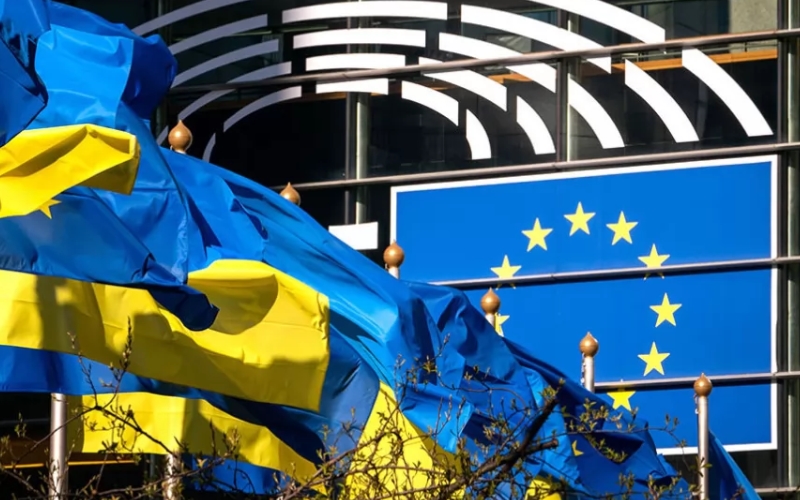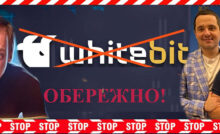Проект долгосрочных обязательств от ЕС. Что он значит для Украины?


На проходящем в эти дни саммите Евросоюза глава европейской дипломатии Жозеп Боррель представит лидерам стран проект долгосрочных обязательств ЕС перед Украиной в секторе безопасности и обороны.
По информации ZN.UA, содержание документа в целом соответствует пунктам, ранее обнародованным агентством Bloomberg. Среди прочего они предполагают долгосрочный механизм военной помощи Украине; обеспечение подготовки украинских солдат; сотрудничество с украинской оборонной промышленностью; поддержку усилий по ядерной безопасности; содействие в разминировании; обмен разведданными и спутниковыми снимками; развитие киберпотенциала; помощь в реализации программ реформ и т.д.
После того как документ получит политическую поддержку на саммите Европейского совета, он станет дополнением к подобным двусторонним договоренностям Киева с отдельными странами — членами Европейского Союза — Германией, Италией, Францией.
С конца лета замглавы офиса президента Игорь Жовква проводит переговоры с представителями стран «Большой семерки» по двусторонним соглашениям о предоставлении нашей стране комплексной военной и экономической помощи. Эта работа ведется ОП в рамках предложенной Западом долгосрочной «стратегии дикобраза» по сдерживанию России, которую с подачи западных партнеров наша страна пытается реализовать на период до вступления в НАТО и возможного замораживания войны с РФ.
В Киеве эти соглашения называют «о гарантиях безопасности». Еще несколько месяцев назад в украинской столице ожидали, что первые из них будут подписаны в конце нынешнего года. Теперь уже ясно, что эта цель не будет достигнута. Поэтому в ОП ставят себе новый ориентир — подписать первые документы до 24 февраля. Но возникают сомнения, что и к этой дате Владимир Зеленский сможет подписать хотя бы один документ: по словам информированных собеседников ZN.UA, «складывается впечатление, что никто не хочет быть первым. Все оглядываются на Соединенные Штаты, а в Вашингтоне не спешат».
Тем не менее первые драфты уже подготовлены. При этом, как утверждают источники ZN.UA, пока неизвестно, как будут называться готовящиеся документы — соглашениями (как настаивает украинская сторона) или совместными декларациями (позиция наших партнеров). Что касается содержания, то тексты будут однотипными, но не идентичными: в них декларируется долгосрочная помощь Украине в вопросах безопасности и обороны, финансовая, экономическая и техническая поддержка, содействие евроинтеграции.
Эти готовящиеся документы по содержанию перекликаются с вышеупомянутым проектом долговременных обязательств Евросоюза в секторе безопасности и обороны.
В частности, предусматривается обеспечение подготовки и тренировки украинских вооруженных сил; углубление сотрудничества с украинским ОПК; усиление способности Украины противостоять кибер- и гибридным угрозам; поддержка реформ оборонного сектора; обмен разведданными; помощь по разминированию. Партнеры также декларируют участие в восстановлении Украины, в том числе, критически важной и социальной инфраструктуры. При этом они пытаются сделать акцент на участии в восстановлении нашей страны после завершения войны, что не устраивает Киев.
Несмотря на настойчивость украинской стороны, наши партнеры старательно избегают употребления в документах слова «гарантии» (guarantees). При этом лишь некоторые из них используют слово «обязательства» (commitments). И точно в документе нет обязательства подписантов отправлять в Украину солдат для защиты от России. Поэтому, хотя Банковая постоянно называет эти документы «соглашениями о гарантиях безопасности», но они не имеют ничего общего с гарантиями, предусматривающими взаимную оборону, а лишь предполагают укрепление обороноспособности Украины, что должно повысить для России цену агрессии.
Как отметил в комментарии ZN.UA доцент кафедры международного права Института международных отношений КНУ им. Т.Шевченко Захар Тропин, «в международном праве не важно, как называется документ, — «гарантии», «договор», «меморандум» или «совместная декларация». Важно его содержание, формулировка положений. Для того чтобы такой документ обеспечивал безопасность Украины, он должен содержать конкретные обязательства сторон и способы обеспечения их выполнения».
Но это лишь одна сторона проблемы будущих соглашений. Другая — наличие у лидеров политической воли выполнять подписанные договоренности. Потому что если она отсутствует, то стороны не будут выполнять свои обязательства, даже если в договоре будет прописана взаимная оборона.
Например, зафиксированное в статье 6 Будапештского меморандума обязательство стран-подписантов провести консультации, так и не было выполнено Лондоном и Вашингтоном, несмотря на предпринятые Киевом усилия весной прошлого года: партнеры просто проигнорировали наше обращение. А на фоне вторжения России в Украину в последние годы растут сомнения, что лидеры стран — членов НАТО согласятся применить статью 5 Вашингтонского договора для защиты от российской агрессии даже стран Балтии.
Судя по всему, наши партнеры намерены брать на себя как можно меньше обязательств. И по мере подготовки документ выхолащивается, приобретая все более общие формулировки. По информации ZN.UA, в нынешних обсуждаемых проектах нет четких обязательств предоставить Украине военное оборудование, технику, снаряды. Хотя украинская сторона настаивает на фиксации в документе материальной и технической помощи Вооруженным Силам Украины, наши партнеры ограничиваются лишь общими фразами о «поддержке в оснащении».
Также неизвестно, будет ли в будущих документах предусмотрен механизм кризисных консультаций Украины со странами-подписантами.
Поэтому, когда офис президента вспоминает «незлим, тихим словом» Будапештский меморандум за отсутствие в нем действенных гарантий безопасности, Банковая одновременно сама загоняет себя в ловушку, постоянно называя обсуждаемые проекты «соглашениями о гарантиях безопасности». Продавая украинцам товар под чужим лейблом, ОП хотя и оттягивает разочарование у наших граждан, но взращивает у них ложные ожидания. Со временем это больно ударит по репутации украинской власти и негативно скажется на рейтинге Зеленского.
Recent Posts
Сбежавший в Швейцарию блогер Станислав Домбровский просит прощения у украинцев
Одесский трэш блогер Стас Домбровский, который в последнее время проживает в Швейцарии, записал видеообращение к…
Александра Устинова и атака на руководство АОЗ: что стоит за волной критики
Александра Устинова, народная депутат, которая в последние дни активно атакует Агентство оборонных закупок (АОЗ) возможно…
Журналисты показали имение киевской судьи, закрывшей дело Приходько
Свобода "под ключ" или манипуляция правосудием? Борис Приходько – нацбанкир времен Януковича и действующий нардеп…
Судьи вне закона
В течение последних трех лет внимание общественности если и бывает приковано к судам, то гораздо…
Артем Ляшанов и bill_line спасают репутацию через суд
Финтех-компания столкнулась с обвинениями в отмывании денег игорной мафии. ООО «Тех-Софт Атлас» (ТМ «bill_line») и…
Криптобиржа WhiteBIT: как Владимир Носов и «регионалы» Шенцевы отмывают деньги и помогают спецслужбам России
Владимир Носов в Украине пытается позиционировать себя как респектабельный бизнесмен и хозяин криптобиржи WhiteBIT. Однако…


